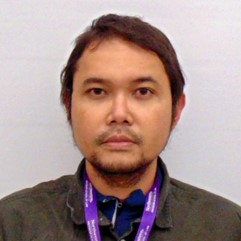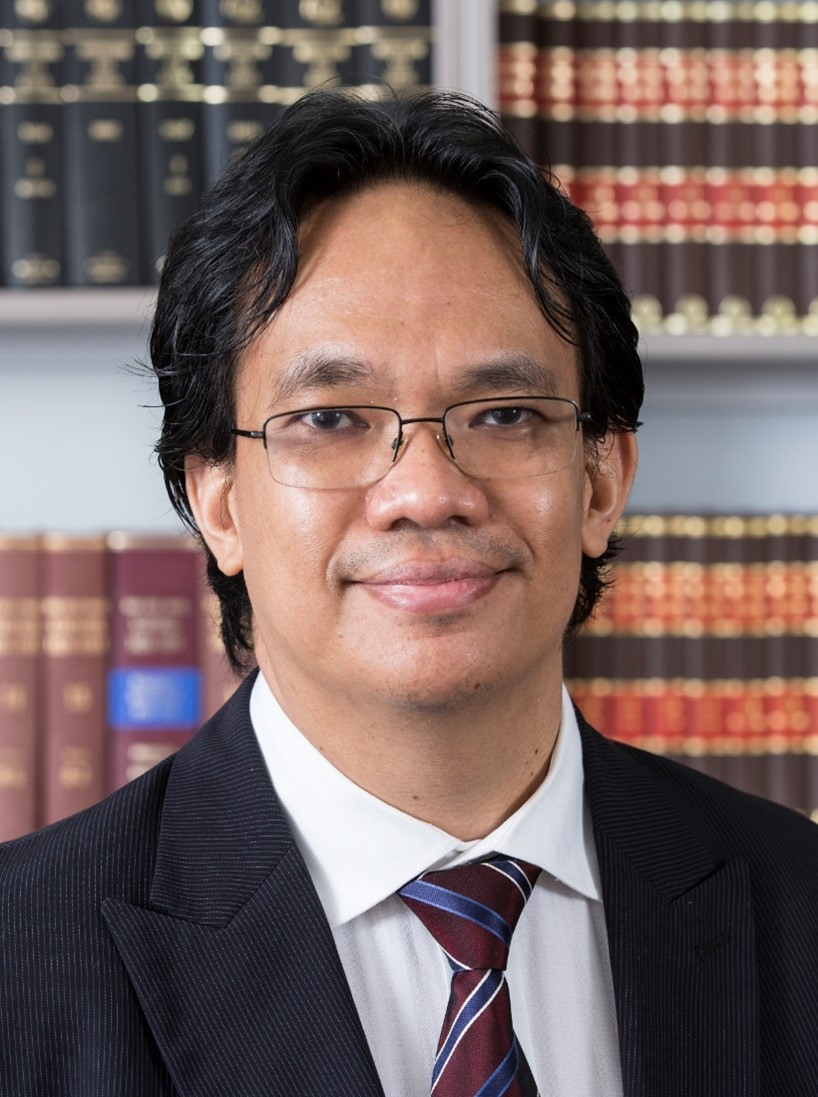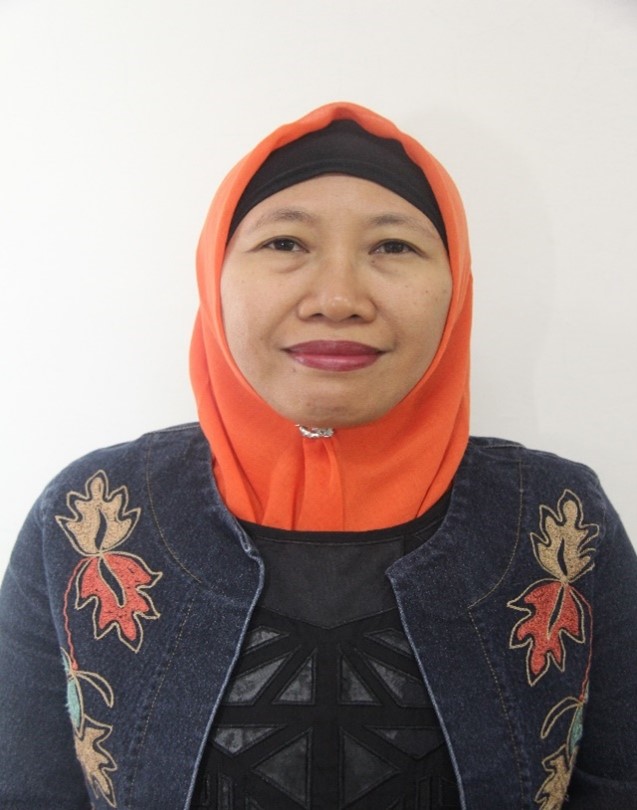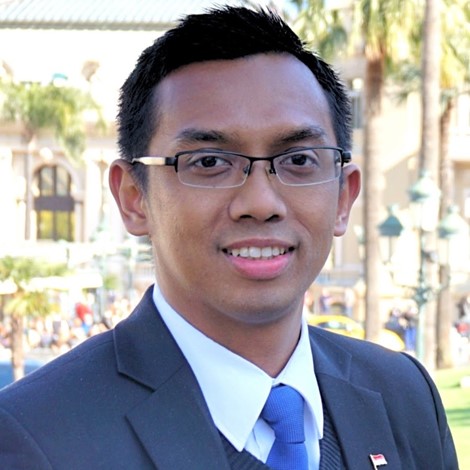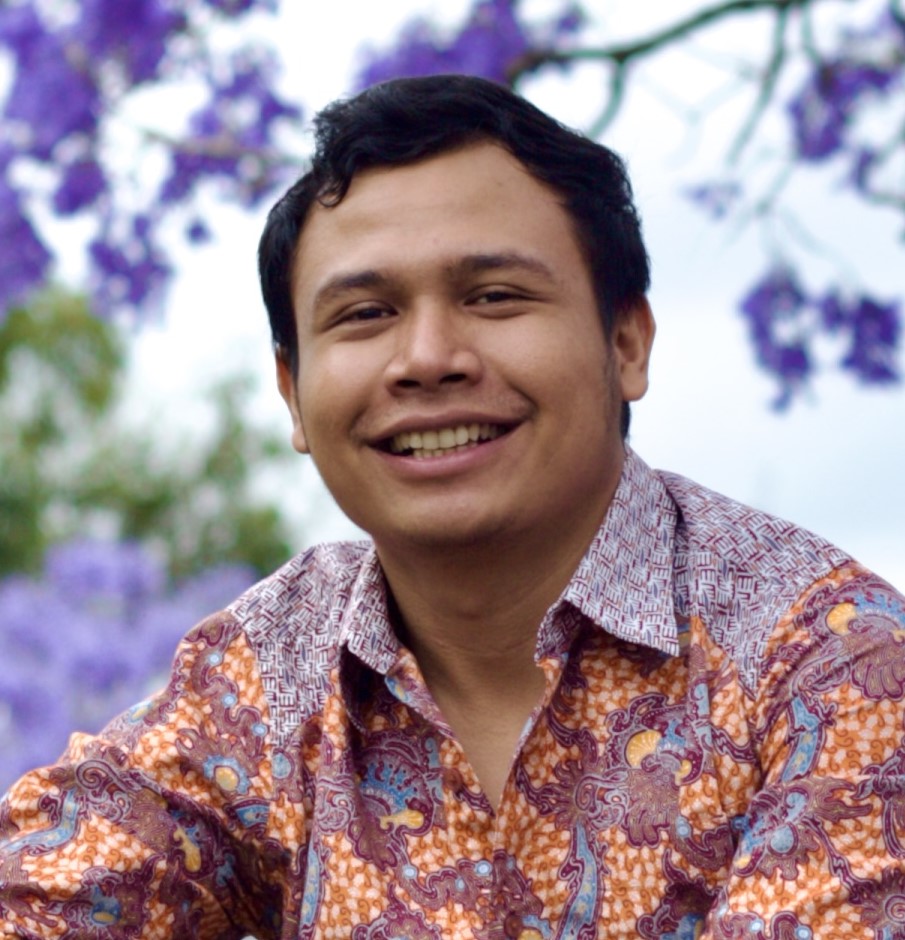Indonesian Law Program
About the Indonesia Law Program
Indonesia Law Program recognises the importance of Indonesia to Australia and Australians. As Australia’s nearest neighbour, the world's third largest democracy and the nation with the largest Muslim population, connection and dialogue with, and between, legal scholars on the nation is crucial. This Indonesian Law Program is designed to highlight seminal issues in Indonesia’s legal system – its laws, important legal institutions, legal culture, Sharia and civil law. There is much on which to base comparison as, unlike the Commonwealth of Australia, Indonesia is a unitary state with additional autonomy for some provinces; it is a civil, not common law legal system; has a Constitutional Court independent from its appellate Supreme Court; and whilst Sharia is a recognised source of law, Indonesia is neither an Islamic state nor is Islam given separate constitutional protection. The Pancasila’s first principle: ‘belief in one Supreme God’ does highlight how religion, whether Islam, Hinduism, Christianity, or Buddhism is integral to Indonesian identity. Indonesia’s management of pluralism - ethnic, religious, cultural, linguistic - across its 34 provinces from Kalimantan to West Papua warrants study. Other areas of focus include Indonesia’s Constitutional Court, judicial activism, rule of law, democracy and human rights; jurisdiction in the autonomous regions; environmental protection including underwater cultural heritage, and gender issues.
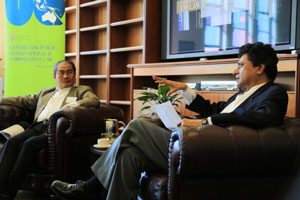
This program formalises the long association CPICL has had with Indonesian scholars, several of whom completed PhDs under the supervision of CPICL Fellows (including Drs Rina Shahrullah, Mirza Buana and Pan Mohamad Faiz. Dr Hosen was a Fellow at the Centre’s inception in 2003 and remains a foremost and highly respected scholar on Indonesian law worldwide. In Indonesia, he is known as "Gus Nadir" (highly respected Muslim scholar and leader). Dr Forrest is part of a research consortium with Indonesian partners (including Gadjah Mada University and Ministry of Marine Affairs and Fisheries) looking at the protection of underwater heritage.
The research undertaken by CPICL Fellows in this program aims to inform, reflect, analyse and open topics for debate. In 2015, CPICL hosted ‘a conversation’ open forum between CPICL’s then Director Professor Suri Ratnapala and Professor Jimly Asshiddiqie, the first Chief Justice of the Indonesia Constitutional Court. The aim is for more such conservations and debates. Other areas of focus include Indonesia's Constitutional Court, judicial activism, rule of law, democracy and human rights; jurisdiction in the autonomous regions; environmental protection including underwater cultural heritage, gender issues and the role for adat and customary laws.
A second ‘In conversation” was planned for November 2023 to mark 20 years of CPICL and 20 years of the Indonesian Constitution Court. It was to feature the Deputy Chief Justice of the Indonesian Constitutional Court, Justice Professor Dr Saldi Isra in conversation with CPICL Director of Public Law, and Professor of Constitutional Law, Nicholas Aroney, with commentary by Assoc Professor Nadir Hosen and Dr Charles Simabura. Unexpected events resulted in its postponement until 2024.
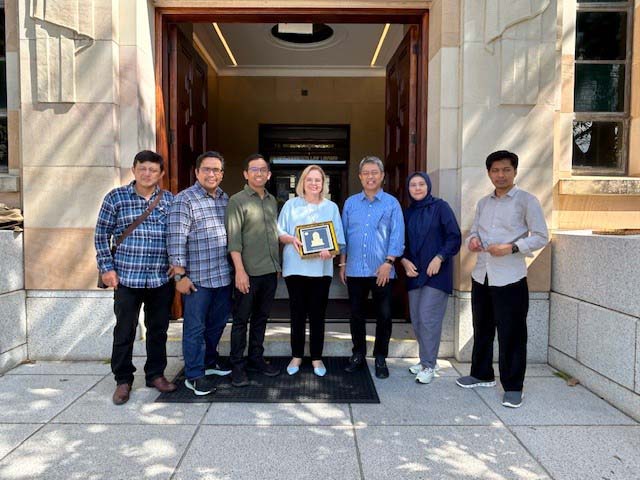
However, Professor Ann Black welcomed some members of the Indonesian Constitutional Court, including CPICL External Fellow Dr Pan Mohammad Faiz, who visited the Law School on the 18th November 2023, and spoke with Indonesian students at a gathering organised by the UQISA.
- Underwater Cultural Heritage of the Maritime Silk Route Indonesia
- Sharia and Legal Pluralism
- Constitutionalism, the Constitutional Court, Human Rights Protection
Underwater Cultural Heritage of the Maritime Silk Route Indonesia
Professor Craig Forrest of the TC Beirne School of Law is undertaking research with Indonesian partners, Gadjah Mada University (Yogyakarta, Indonesia) and Ministry of Marine Affairs and Fisheries, Republic of Indonesia (Kementerian Kelautan dan Perikanan) with an ARC Linkage Grant administered by Flinders University: “Reuniting cargoes: Underwater Cultural Heritage of the Maritime Silk Route”. Beginning in the mid-1400s the Maritime Silk Route witnessed the largest known expansion of global trade. But the legacy of artefacts retrieved from this time has not been appropriately understood because the objects were mostly salvaged and dispersed without recording the archaeological details of their find-spots. Our multilateral consortium aims to discover the cultural value of the largest Southeast Asian ceramic collections in Indonesia and Australia with archaeological science. By employing and enhancing international conventions, the project will generate new knowledge about this decisive epoch in world history and build capacity to preserve the underwater cultural heritage of our region for future generations.
Participants: Professor Craig Forrest of the TC Beirne School of Law; Gadjah Mada University (Yogyakarta, Indonesia) and Ministry of Marine Affairs and Fisheries, Indonesia.
Sharia and Legal Pluralism
In a Muslim majority nation, the role of Shari’a was a central issue at independence when the preamble to the Constitution removed the Jakarta Charter [with the obligation to carry out Islamic shari’a for its adherents] and remains a much-debated topic, especially in one of the world’s most pluralistic nations. This project explores shari’a in the context of Indonesian pluralism: ethnicity, religion, linguistics and culture and the role for customary law. In addition as a member of ASEAN Indonesia is bound to implement ASEAN legal instruments.
Dr Nadir Hosen is an eminent Shari’a scholar, highly respected in Indonesia and around the world. Shari’a and Constitutional Reforms in Indonesia (Institute of Southeast Asian Studies, 2007) is a seminal work in the field. With CPICL Fellow Ann Black, and Hossein Esmaeili, he wrote Modern Perspectives on Islamic Law (Edward Elgar, UK, 2013 and 2015); co-edited with Joseph Liow Islam in Southeast Asia, 4 volumes (Routledge, 2010), and the Research Handbook on Islamic Law and Society (Edward Elgar, 2018). This includes a chapter from CPICL Fellow Ann Black on ‘Colonial legacies: family law in Singapore and Australia’ with a Shari’a comparative analysis between two common law jurisdictions. Dr Hosen has also published on Shari’a in Indonesian language (Bahasa) including Tafsir al-Qur'an di Medsos; Islam Yes, Khilafah No (2 vols); Saring Sebelum Sharing; Ngaji Fikih. He is known in Indonesian communities as "Gus Nadir", a well-respected Muslim scholar and spiritual leader, amongst Nahdlatul Ulama (NU), the largest Islamic organisation in Indonesia with more than 60 million members. His 400,000 Twitter followers testify to the impact of his research.
Amongst the leading publications on Shari’a and pluralism in Indonesia are: ‘Sharia, state and legal pluralism in Indonesia: how law can you do?’ in Gary Bell (ed), Pluralism, Transnationalism and Culture in Asian Law. 2017, Singapore: Institute of Southeast Asian Studies, 208 -230; ‘Hudud and corruption: a critical analysis of proposals to cut off the hands of the corrupt in Indonesia’ in Timothy Lindsey and Helen Pausacker (eds) Crime and Punishment in Indonesia 2021, Abingdon, Routledge, 490-503; ‘Hilal and Halal: how to manage Islamic pluralism in Indonesia’ (2012) 7Asian Journal of Comparative Law, 1 – 18; ‘Online fatwa in Indonesia: From fatwa shopping to googling a kiai’, Dec 2008, Expressing Islam: Religious Life and Politics in Indonesia (Institute of Southeast Asian Studies, 159-173.
Fulbright scholar, Dr Mirza Buana, analyses Shari’a in specific contexts including the recent and contentious Omnibus Law: see: ‘Indonesia's minimum wage policy as the Omnibus Law: A Comparative analysis from Islamic perspective’ (2022) UUM Journal of Legal Studies, and Assoc Professor Rina Shahrullah evaluates business and commercial Shari’a dimensions: ‘see: The Effectiveness Of The Islamic Arbitration Institution In Settling Banking Disputes In Indonesia, (2019) 5 (2) International Journal Of Law And Interdisciplinary Legal Studies.
Participants: Dr Nadir Hosen, Dr Mirza Buana and Associate Professor Rina Shahrullah.
Constitutionalism, the Constitutional Court, Human Rights Protection
The Constitutional Court as a protector of human rights and constitutionalism in Indonesia warrants ongoing assessment and research. The fellows in this project will build of their existing scholarship in the field.
Dr Pan Mohamad Faiz is a leading researcher at Indonesia’s Constitutional Court where he evaluates and assesses many dimensions of constitutionalism through the decisions of the Constitutional Court. Protection of the human rights of Indonesia’s minorities is one area of research as seen in the chapter written with the Hon’ble Justice Professor Saldi Isra: ‘The role of the constitutional court in protecting minority rights a case on traditional beliefs in Indonesia’ in Bertus de Villiers, Joseph Marko, Francesco Palermo and Sergiu Constantin (eds) Litigating the rights of minorities and indigenous peoples in domestic and international courts (2021) Brill Nijhoff, 125-148. Economic and social rights are the focus in ‘The Role of the Constitutional Court in Protecting Economic and Social Rights in Indonesia ’ (2021) 24 Journal of Legal, Ethical and Regulatory Issues, 1-16, (with IDG Palguna and Saldi Isra) and civil and political rights protection in ‘The protection of civil and political rights by the constitutional court of Indonesia’ (2016) 6 Indonesian Law Review , 158.
Analysis of key features of the Constitutional Court and reform options are explored by Dr Faiz in ‘Prospect and Challenges for Adopting Constitutional Complaint and Constitutional Question in the Indonesian Constitutional Court’ (2016) 2 Constitutional Review, 103: ‘Legal Problems of Dualism of Judicial Review System in Indonesia’ (2017) 16 (2) Jurnal Dinamika Hukum, 187-195; and ‘A Critical Analysis of Judicial Appointment Process and Tenure of Constitutional Justice in Indonesia’ (2016) 2 (92) Hasanuddin Law Review 152-169.
Comparative analysis with the European Court of Human Rights features in: ‘The dissolution of political parties in Indonesia: lessons learned from the European court of human rights’ (2019) 22 (4) Journal of Legal, Ethical and Regulatory Issues, 1-10.
Dr Nadir Hosen has reviewed many dimensions of Indonesian constitutionalism, see: ‘Checks and balances mechanism in Islamic constitutionalism: a critical reflection (2019) 7 (2) Journal of Islamic Studies and Culture, 26-38; ‘The Constitutional Court and 'Islamic' Judges in Indonesia (2021) 2 Australian Journal of Asian Law; ‘Promoting democracy and finding the right direction: A review of major constitutional developments in Indonesia’ in Albert HY Chen, Constitutionalism in Asia in the Early Twenty-First Century (2014) Cambridge, University Press, 322 – 342.
Dr Mirza Buana takes a comparative lens to assess this topic from the perspective of indigenous peoples, minority rights and decentralization. See: ‘Development as a threat to Indigenous peoples in Indonesia’ (2020) 27 (3) International Journal of Minority and Group Rights; Legal-political paradigm of Indonesian Constitutional Court: Defending a Principled Instrumentalist Court, (2020) 6 (1) Constitutional Review.; ‘Understanding Indigenous peoples in Indonesia’ in Tove Malloy and Levente Salat (eds) Non-Territorial Autonomy and Decentralization, 2020, Routledge, and ‘A Realistic perspective to transitional justice: a study of its impediments in Indonesia’ (2020) 4 (2) Journal of Southeast Asian Human Rights.
Dr Buana, as an external researcher at the Indonesian Human Rights Commission (KomnasHAM), is currently engaged in research on the human rights impact of the massive expansion of palm oil plantations in South Kalimantan Province and on the establishment of the New Capital City of Nusantara in East Kalimantan, Indonesia.
Associate Professor Rina Shahrullah has looked specifically at Human Rights in Aceh: See, ‘Revisiting Implementation of Treaties on Human Rights in The Islamic Court of Aceh, Indonesia: Compliance or Violation? (2019) 5 (1) The Athens Journal of Law, 61-80.
Professor Ann Black, TC Beirne School of Law, will use comparative methodology drawing on her research in the neighbouring Sultanate of Brunei Darussalam, to evaluate to extent to which Indonesia’s legal institutions, including its Constitutional Court and democratic political processes, could be adapted in Brunei to strengthen human rights protections in the Sultanate.
Most recent publication: Exporting a Constitutional Court to Brunei? Benefits and Prospects (2020) 8 (2) Constitutional Review.
Participants: Professor Emerita Jennifer Corrin, Dr Pan Mohammad Faiz, Dr Nadir Hosen and Dr Mirza Buana, Associate Professor Rina Shahrullah, and Professor Ann Black.
New Publications by CPICL Fellows on Indonesia
- Pan Mohamad Faiz , Saldi Isra, and Oly Viana Agustine, ‘Strengthening Indonesia’s Regional Representative Council Through Judicial Review by the Constitutional Court’ Sage Online, October 2023.
- Pan Mohamad Faiz, Saldi Isra, Irfan Nur Rachman, Abdul Ghoffar & Khairul Fahmi, Big man, bag or ballot box? Upholding legal pluralism through noken as a traditional system of voting in elections in Papua, Indonesia ,Legal Pluralism and Critical Social Analysis, November 2023.
Saldi Isra and Pan Mohamad Faiz ‘The Role of the Constitutional Court in Protecting Minority Rights : A Case on Traditional Beliefs in Indonesia” In: Litigating the Rights of Minorities and Indigenous Peoples in Domestic and International Courts published by Brill.
To be published early next year (2024)
Courts and Diversity: Twenty Years of the Constitutional Court of Indonesia , edited by Bertus de Villiers, Saldi Isra and Pan Mohamad Faiz in Brill's Asian Law Series, Volume: 12

Learn more about the Constitutional Court of the Republic of Indonesia.
Research on Indonesia is also undertaken by the School of Languages and Culture: Indonesian studies.





